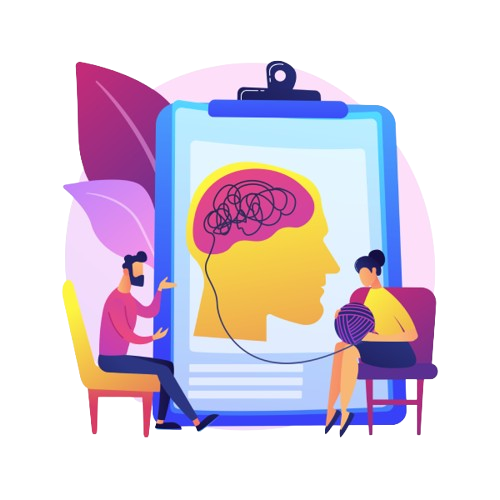Table of Contents
Psychology is the study of human behavior and mental processes, and within this broad field, there are several subfields that focus on different aspects of human behavior. One such subfield is applied psychology, which focuses on the practical application of psychological principles to solve real-world problems. In this blog, we will explore the applied psychology definition, scope of applied psychology, importance, and features of applied psychology, as well as its history, branches, and impact.
What is Applied Psychology?
Applied psychology is defined as the branch of psychology that applies psychological theories, principles, and techniques to practical problems in various settings, such as education, industry, healthcare, sports, and law enforcement. It aims to use psychological knowledge to improve the quality of life for individuals, organizations, and communities.
History and Evolution of Applied Psychology
The roots of applied psychology can be traced back to the late 19th century when Wilhelm Wundt established the first psychology laboratory in Leipzig, Germany. However, it was not until the early 20th century that applied psychology emerged as a distinct field. The establishment of the American Association of Applied Psychology in 1907 marked the beginning of applied psychology as a separate entity. The father of applied psychology was Hugo Münsterberg, who came to America from Germany, invited by William James, and applied psychological methods and findings to various practical problems of human and animal behavior and experience. Since then, applied psychology has grown rapidly, with new branches emerging and existing ones expanding their scope.
Nature and Features of Applied Psychology
Applied psychology is a diverse field that encompasses several branches, each focusing on a specific area of application. Some of the prominent branches of applied psychology include clinical psychology, counseling psychology, neuropsychology, developmental psychology, educational psychology, industrial-organizational psychology, and forensic psychology. Each branch uses psychological theories and techniques to address practical problems in their respective domains.
Scope of Applied Psychology in India
In India, applied psychology has gained significant recognition in recent years. Several universities offer courses and programs in applied psychology, and professionals in this field work in various industries, including healthcare, education, and business. The demand for applied psychologists is increasing, particularly in areas such as mental health, counseling, and organizational development.

Benefits of Studying Applied Psychology
Studying applied psychology offers several benefits, including:
- Practical applications: Applied psychology provides practical solutions to real-world problems, making it a valuable tool for individuals and organizations seeking to improve their lives and functions.
- Career opportunities: Graduates in applied psychology can pursue careers in various fields, such as clinical psychology, counseling, education, and business.
- Transferable skills: The skills learned in applied psychology, such as critical thinking, problem-solving, and interpersonal communication, are transferable across industries and roles.
- Contribution to society: Applied psychology enables individuals to contribute to society by helping those in need, improving systems and processes, and advancing our understanding of human behavior.
Major Subjects in Applied Psychology
Some of the major subjects in applied psychology include:
- Abnormal psychology: The study of psychopathology and abnormal behavior, including diagnosis, assessment, and treatment.
- Developmental psychology: The examination of human development across the lifespan, including cognitive, social, and emotional changes.
- Educational psychology: The study of how people learn and how to improve educational outcomes, including the application of psychological principles to teaching and learning.
- Industrial-organizational psychology: The use of psychological principles to improve employee performance, job satisfaction, and organizational effectiveness.
- Clinical psychology: The diagnosis, assessment, and treatment of mental illnesses, including the use of psychotherapy and other interventions.
- Counseling psychology: The provision of guidance and support to individuals dealing with personal, social, or vocational issues.
- Neuropsychology: The study of the relationship between the brain and behavior, including the assessment and treatment of neurological disorders.
Importance and Impact of Applied Psychology
Applied psychology plays a vital role in addressing various challenges faced by individuals, organizations, and communities. Its importance lies in its ability to provide evidence-based solutions to real-world problems, thereby improving the quality of life for people. Here are some ways in which applied psychology makes a positive impact:
- Improving Mental Health: Applied psychology helps individuals struggling with mental health issues such as anxiety, depression, and trauma.
- Enhancing Learning Outcomes: Applied psychology contributes significantly to education by providing insights into how people learn and retain information.
- Promoting Workplace Well-being: Organizations benefit from applied psychology by creating a healthy and productive work environment.
- Supporting Social Justice: Applied psychology addresses societal issues like discrimination, inequality, and social exclusion.
- Advancing Technology: Applied psychology informs the design of technology, ensuring user interfaces are intuitive and user-friendly.
Conclusion
In conclusion, applied psychology plays a crucial role in addressing various challenges faced by individuals, organizations, and communities. By leveraging psychological principles and research, applied psychologists develop evidence-based solutions that improve mental health, enhance learning outcomes, promote workplace well-being, support social justice, advance technology, enhance sports performance, address environmental challenges, strengthen relationships, provide accessible services, and advocate for evidence-based practices. As the field continues to evolve, it is essential to recognize the importance of applied psychology in shaping a better future for all.
FAQs About Applied Psychology
1. What is Applied Psychology Meaning?
Applied psychology refers to the practical application of psychological principles and theories to solve real-world problems. It focuses on using empirically supported techniques and interventions to improve the well-being and functioning of individuals, groups, and organizations.
2. What is the Difference Between Psychology and Applied Psychology?
To understand applied psychology vs psychology, Psychology is the scientific study of behavior and mental processes, while applied psychology is the application of psychological principles and theories to practical problems. In other words, psychology focuses on understanding human behavior and mental processes, whereas applied psychology uses that understanding to develop interventions and solutions that can be used in real-world settings.
3. What is the Difference Between Applied Psychology and Clinical Psychology?
To understand clinical vs applied psychology, Applied psychology and clinical psychology are both branches of psychology that focus on applying psychological principles to real-world problems. However, clinical psychology specifically focuses on the diagnosis, assessment, and treatment of mental illnesses, while applied psychology takes a broader approach, addressing a wide range of issues, such as education, workplace performance, and environmental concerns.
4. What is the Difference Between Basic and Applied Psychology?
Basic psychology refers to the study of fundamental psychological processes, such as perception, attention, memory, and motivation. Applied psychology, on the other hand, takes the findings and theories from basic psychology and applies them to practical problems, such as improving education, workplace performance, and mental health. In other words, basic psychology seeks to understand human behavior and mental processes, while applied psychology uses that understanding to develop solutions that can be used in real-world settings.




